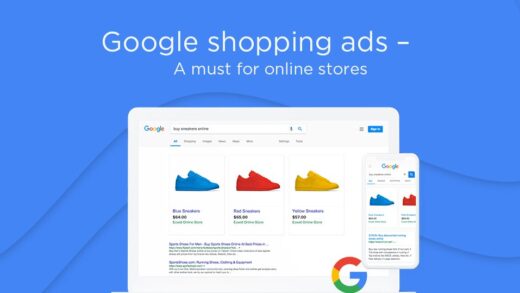Top 17 Ecommerce Price Comparison Websites
Shoppers enjoy comparing product value to pricing in order to find the best deal possible when shopping online. What if they could compare prices for a specific product without having to switch websites? This is precisely the purpose of Comparison Shopping Engines (CSEs), which allow thousands of online eCommerce merchants to list their best deals in order to attract new customers and compete with their competitors.
Ecommerce merchants can use comparison shopping engines (CSEs) to attract new customers, increase sales, and compete with the competition.
These price comparison engines serve two purposes: they provide the best value for the product to the customer while also providing a platform for merchants to showcase their best deals.
This article is for you if you want to start an online business, create an e-commerce website, and make your e-commerce store more visible on SERPs. The in-depth guide covers everything from what comparison shopping engines are to the best CSE platforms (based on popularity) and how to list your products on such online selling platforms. We provide a list of various price comparison websites.
Get in touch with Adsthrive, Top Digital Marketing Agency in Bangalore to get a detailed insight on eCommerce price comparison.
We’ll explain what comparison shopping engines are, recommend some of the best platforms, and show you how to get your products listed on these online marketplaces in this guide.
What is Ecommerce Price Comparison Websites?
Product information and pricing from various e-commerce sites are collected by Price Comparison Engines. These sites respond to a shopper’s search query by displaying relevant product information on a single result page, allowing the shopper to find the best deals online. Customers can find the best deals online by comparing rates, shipping conditions, and other customer benefits on a single platform.
One of the best CSEs for starting searches is ads thrive. Simply type in your search term, and the search engines will show you the best deals from all of the listed e-commerce sites, saving you the time of searching the internet for “the one.”
Price comparison shopping engines provide an opportunity for eCommerce merchants to get their products in front of highly interested buyers. Hence, they show the Top Ecommerce Price Comparison Websites. This isn’t a group of people looking at a virtual storefront like a mall window shopper. Users of price comparison sites have typically made up their minds about what they want to buy and are simply looking for the best deal. Comparison shoppers are often an ideal audience for promoting your products due to their high purchase intent.
How do Ecommerce Price Comparison Websites work?
On the consumer side, price comparison sites function similarly to a search engine, with the exception that price comparison engines will compare products side by side and show how they compare in terms of pricing. Typical search engines present results in a straightforward manner, with no price sorting or comparisons.
Each price comparison site is unique in terms of its business model. You basically pay a fee, submit the required content (product photos, URL, price, description, and so on), and then list your products. Your products will then appear alongside similar products, ranked by price, in relevant searches.
Many people, particularly those who are frequent online shoppers, hold such Ecommerce Price Comparison Websites in higher regard. The majority of visitors to these sites are regular online shoppers looking for the best deal. Consumers benefit from comparison shopping engines because they display the best results for a specific product.
This will aid in the development of your pricing strategy. You don’t want to be overpriced compared to competitors, but you do need to charge enough to make a profit.
Top 17 Ecommerce Price Comparison Websites
1. Google shopping
For product listings and price comparison, Google Shopping is by far the most popular and widely used search engine. Additionally, Google Shopping products are displayed on Google’s main SERP with relevant keyword searches. Without a doubt, Google is the most frequently searched SERP, with more than 60% of users relying on it for their daily searches. Google’s PPC platform is also integrated with the products.
A beta benchmarking tool for product prices on Shopping ads was also launched by Google. This tool shows you three specific metrics to help you see how you compare to your competitors:
- Average product price: when your ad appeared or when your ad was competitive in an auction, this was the average price of a product.
- Benchmark product price: the average click-weighted price for a product across all businesses that advertise it with Advertisements for shopping
- Benchmark product price difference: The percentage difference between your product’s average product price and the benchmark product price is known as the benchmark product price difference.
2. PriceGrabber
PriceGrabber is a Connexity venture that allows e-commerce merchants to list and promote their products online by providing the finest eCommerce price comparison websites. Furthermore, direct access to Connexity’s retail performance marketing network enables the user to set up and maintain campaigns with ease. There are no long-term contracts or signup fees, giving you the freedom to remove products from the site whenever you want. The benefit of listing your products on PriceGrabber is that you will be automatically listed on Yahoo.
3. Shopping.com
Shopping.com, a venture of eBay, is yet another worthwhile option to consider when it comes to displaying products in front of potential buyers. Any business’s biggest challenge is getting their products in front of the right people; CSEs like shopping.com can help you with that.
4. Shopzilla
Shopzilla is an old and gold comparison shopping engine (CSE) that proudly facilitates millions of visits per month. It is, without a doubt, the best site for e-commerce merchants to list their products and earn extra money from their online business. Aside from the e-commerce store, Shopzilla allows you to be discovered by millions of people all over the world. Shopzilla, like PriceGrabber, is a Connexity venture that allows you to take advantage of this retail platform.
5. Become
Become is another top comparison shopping engine that is well-known for providing the best value for online purchases. The platform is a great place to go if you’re looking for a good deal. Additionally, buyers who use the platform can read and write product reviews. Become has a reputation for finding the best online deals at the lowest prices.
6. Bing shopping campaigns
Because Bing is such a popular search engine, it provides an opportunity for e-commerce merchants to begin their marketing campaigns and make their brands visible to Bing users. Microsoft’s advertising suite includes a shopping campaign feature.
7. Amazon sponsored products
Amazon is a product marketplace, but when a merchant registers for sponsored products manually or via FTP, it acts like a CSE. Using the information you provide, the platform will create ads to display your products in an appealing manner. Because Amazon is used and trusted by many buyers all over the world, it is the best option an e-commerce merchant could make for promoting his products online. Amazon will also show live ads after you set your budget, forcing you to pay per click to the platform.
8. Pronto
Pronto has the features that every e-commerce merchant looks for when it comes to promoting product catalogues online, with an inventory of millions of products listed and sorted among various categories. When it comes to starting Comparison Shopping Sites (CSE) campaigns, it is one of the best sites
9. Bizrate
Bizrate is a price comparison site that, in addition to showing the best product prices, allows customers to set price alerts for products that pique their interest, allowing them to stand out in the crowd. Another Connexity company is allowing e-commerce merchants to benefit from the parent company’s services as well.
10. Camelcamelcamel
Camelcamelcamel – the CSE compares the best deals for a product over time by tracking Amazon’s product price history. Buyers who visit the site are presented with historical pricing and trends. Aside from product listings with competing prices, the platform alerts buyers to price drops in real-time.
11. ShopMania
ShopMania is one of the best price comparison tools that operate on a pay-per-click model, with users from over 30 countries and search history of millions of users from all over the world. When a customer clicks on the link, the website redirects him to the product page, and you are charged for the clicks to your product page. ShopMania is a Facebook selling app that works in tandem with ShopMania.
What do you need to register on ShopMania?
- A fully functional ecommerce store
- Should be legally registered as a selling firm
- Contact information should be easily accessible
- You should communicate in the official language and currency of the country from which you are conducting business.
12. BuyVia
BuyVia is available to anyone via a browser search or a mobile app. BuyVia, like its competitors, allows buyers to compare products based on price settings and the value they provide at a given rate. The platform’s selling point is that it allows customers to scan barcodes to find product availability and set price drop alerts. Buyers can also take advantage of BuyVia coupons and promo codes to get the best deal on their purchase.
13. ShopSavvy
ShopSavvy is a price comparison app for mobile phones that allows users to search for products using relevant keywords, UPSC codes, or barcode scanning. ShopSavvy displays search results for identical or similar products sold by other online retailers or e-commerce stores. Additionally, buyers learn which stores have how many units in stock, which is a significant advantage when purchasing in bulk and reselling.
14. Yahoo shopping
The tool, as its name suggests, works on Yahoo and caters to users looking for the best price range for a specific product. On the Yahoo Shopping site, buyers can create a wishlist and track price history (monitoring price changes over time). As a buyer, you can shop online for the best prices on the products you want, and as an e-commerce merchant, you can reach out to your competitors and display your product listings for the best prices. Yahoo Shopping offers product discounts to keep its customers.
15. Pricepirates
Pricepirates is a price comparison tool based in Germany, but it also has versions for Australia, the United Kingdom, Switzerland, and the United States. Customers from these countries can find low-cost bestsellers, as well as anything else they want with a simple search. Amazon and eBay results are displayed. Pricepirates offers an Android and iOS app for buyers.
16. MyShopping Datafeed
MyShopping Datafeed is a CSE available to Shopify stores in Australia. The Shopify app is completely free, and it allows you to list your products alongside over 11 million others. This app can be used by businesses of all sizes, including those with more than 1,000 products.
17. Idealo
Idealo is a German comparison shopping engine that allows e-commerce businesses to register their products on the site by simply generating a CSV file. The procedure is straightforward, and it provides the same benefits as any other CSE site. Has a respectable user base.
The cost of price comparison shopping engines:
The majority of CSEs will charge you per click-through or action. Sellers who use pay-per-click pay a set fee or bid each time a potential customer clicks on their link. ShopMania’s pricing strategy is based on pay-per-click (PPC).
Retailers will pay a percentage of the value of a sale mde as a result of being listed on the CSE in a pay-per-action model. There is no one-size-fits-all pricing model for all businesses, so pick the one that works best for you.
Unfortunately, not all price comparison engines are open about pricing information, so you’ll have to figure out what the going rates are for your industry on each platform.
How to get products listed on price comparison websites?
Most CSEs require retailers to submit a product feed in a specific format. This feed must adhere to a CSE-defined specification and be updated on a regular basis. The CSE parses and ingests the data from the feed using scripts, displaying the included information on results pages as needed.
Several apps are available for Shopify merchants that make submitting product feeds to CSEs easier and, in some cases, automatic. Smart merchants will optimize descriptions and product prices regardless of how a feed is created to get the most sales possible.
Which is the best price comparison site for your online business?
Every e-commerce merchant’s final decision is different. Finding the best price comparison engines for your online e-commerce business requires a number of factors to be considered, such as what products you are selling. What kind of customers do you think you’ll be able to attract? What features or unique selling propositions are you looking for in CSEs? Try a few options to find the best CSE for your online business that contributes significantly to the Return on Investment. Remember that you can always back out of a deal if you don’t think it’s worth it.
To know more about price comparison websites connect to Adsthrive, Digital Marketing Agency in Bangalore, India.
Grow your business with price comparison sites:
Price comparison engines are an effective customer acquisition tool if you have a competitive price point and a high-quality product.
CSEs can be a great way to ease buyer hesitation and instill confidence in their purchase, whether you compare your own products to one another or against the competition.
Summary:
Adsthrive, the Best Digital Marketing Agency in Bangalore is recommended to find the best price comparison websites as it’s the most reliable. It helps to bring the best results possible by providing such informative blogs which can assist in providing further opportunities, so stay tuned with us and keep getting the updates!



